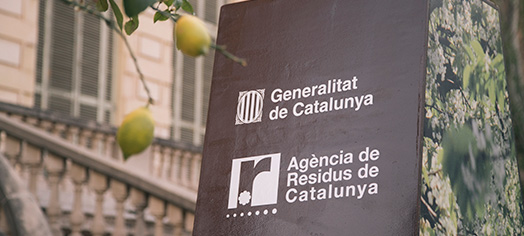Informative Note. Resolution ACC/1265/2024, dated April 2, on the Approval of the Inspection Plan for Cross-Border Waste Shipments in Catalonia for the period 2024-2028
Published: 16 de May de 2024
The Regulation (CE) 1013/2006, of 14 June 2006, on shipments of waste, establishes the necessary requirements for the shipment of waste both within the European Union and with third countries. Additionally, the State Law 7/2022, of 8 April, on waste and contaminated soils for a circular economy, assigns powers to the Autonomous Communities in terms of authorizing waste shipments, as well as inspection and sanctioning powers derived from this regime.
In this context, the Catalan Waste Agency (Agència de Residus de Catalunya) has approved a new Inspection Plan for cross-border waste shipments in Catalonia. Below, we detail the most important points:
1. Scope and duration
The territorial scope is Catalonia, and the plan applies to waste shipments from or to countries belonging to the European Union. Inspection actions will be carried out in establishments, companies, traders, agents, or transporters involved in the shipment when the point of origin or destination is within Catalonia or during the shipment within Catalonia, by road or rail.
The Plan is valid for 5 years and is reviewed every 3 years, updating whenever circumstances require.
2. Objectives and priorities of inspections, with mandatory risk assessment
The main objectives of the Plan are as follows:
a) Promote compliance with the objectives established in European, state, and Catalan regulations.
b)Verify the degree of compliance in cross-border waste shipments.
c) Detect and control illicit shipment activities, with special emphasis on those with higher environmental risk.
d) Achieve an optimal level of compliance with the legislation, through prevention and information.
3. Indicative information about the inspections
Scheduled inspections include operators importing/exporting waste from or to EU states, as well as inspections in transit through Catalonia.
4. Authorities, competencies, and personnel involved in the inspections
The Waste Agency of Catalonia is the entity responsible for carrying out the shipment inspections, and annually, before the end of the third quarter of each year, it will send a report to the Sub-Directorate General of Waste of the Ministry to control waste shipments.
5. Criteria for conducting inspections
Inspection priorities are established in the annual programs, considering illicit shipments, shipment flows, and the nature of the waste. A risk assessment is conducted to determine the minimum number of required inspections. The following objective and subjective criteria are set for this risk assessment:
- Impact Criteria: hazardousness of the waste, amount of waste shipped annually, number of annual shipments, ways of transport, degree of environmental assessment and final destination of the waste.
- Operator Criteria: adoption of environmental management systems by the operator, operator’s attitude, data or indications of illicit or irregular shipments, data from sanctioning proceedings on cross-border waste shipments and data on environmental crimes committed.
These criteria are individually scored, with higher scores leading to more frequent inspections of the operator and their shipments. For example, hazardous waste scores 5 points, while non-hazardous waste scores 1 point.
Depending on the risk category (which is annual for all types), the inspection frequency will be as follows:
- Inspections of establishments, companies, agents, and traders with a low-risk category: preferably triennial inspection.
- Inspections of establishments, companies, agents, and traders with a medium-risk category: preferably biennial inspection.
- Inspections of establishments, companies, agents, and traders with a high-risk category: preferably annual inspection.
- Inspections of waste flows in transit with a medium/low-risk category within the territorial scope: annual inspection.
- Inspections at border or nearby locations with a high-risk category: annual inspection.
- Inspections based on complaints, requests from other authorities, or derived from documentary controls that require additional documentation or for illicit shipments: annual inspection.
We remain at your disposal for any questions or queries, via email acc@clavellcanalsconsulting.com

